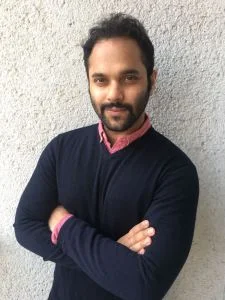Appointments, Accountability and Independence: The Indian Supreme Court at a Crossroads
/Anashri Pillay
The Supreme Court of India (SCI), arguably the most powerful Court in the world, occupies an unusually prominent position within discussions of Indian constitutionalism. Recent accounts of the SCI are striking for the contradictions they highlight. The narrative of the SCI as a stalwart champion of pro-poor causes is hard to reconcile with instances of extreme judicial deference in the face of e.g. governmental neglect of land rights and worker protection.
Read More










![Xx1088_-_Seoul_city_nightscape_during_1988_Paralympics_-_3b_-_Scan [test].jpg](https://images.squarespace-cdn.com/content/v1/5af3f84a4eddec846552ea29/1527486925632-3VZP3ASLAHP1LJI0D9NJ/Xx1088_-_Seoul_city_nightscape_during_1988_Paralympics_-_3b_-_Scan+%5Btest%5D.jpg)
